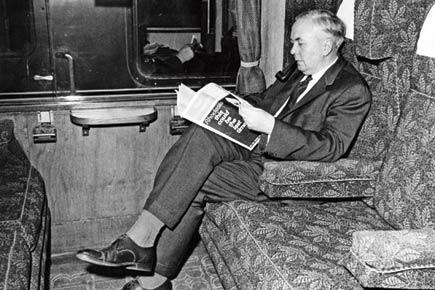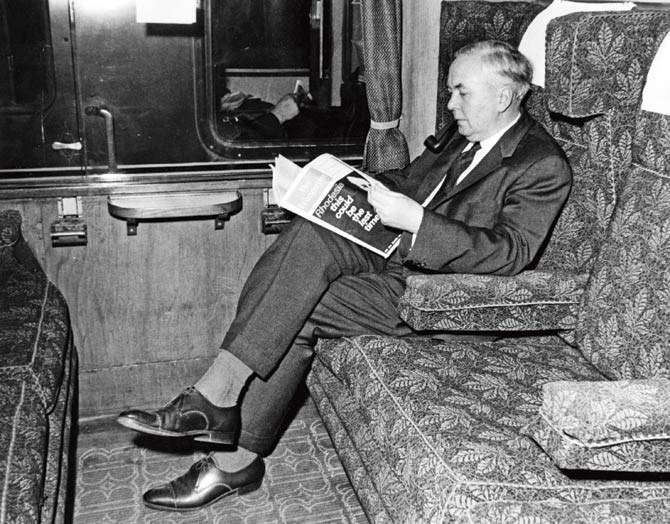The Economist is one of the rare examples of a good, editorially-driven media brand that is also profitable

 The Economist is one of the rare examples of a good, editorially-driven media brand that is also profitable. At 1.6 million in circulation (print and digital) globally, £328 million in revenues and £60 million in operating profit in March 2015, it is in rude financial health.
The Economist is one of the rare examples of a good, editorially-driven media brand that is also profitable. At 1.6 million in circulation (print and digital) globally, £328 million in revenues and £60 million in operating profit in March 2015, it is in rude financial health.
ADVERTISEMENT
But it is the 172-year-old brand's ownership structure that has stood the test of time that is really interesting. Exor, the Italian holding company that also owns Fiat Chrysler among other companies, has a 43.4 per cent stake in The Economist. The rest is owned by the Economist Group, comprising past and present employees and business families such as Cadbury, Schroder and Rothschild. There are trust shares which are held by trustees whose consent is needed for any sale or transfer of shares. ‘The appointments of the editor of The Economist and of the chairman of the company are subject to the approval of the trustees. The rights attached to the trust shares ensure the continued independence of the ownership of the company and the editorial independence of The Economist, says the firm’s website.

A 1965 photograph of British Prime Minister Harold Wilson reading The Economist magazine in a train carriage at Paddington Station, London. The 172-year-old brand continues to stand the test of time. Pic/Getty Images
Last month, even before the firm changed hands (the first major change in 90 years) from Pearson to Exor, “...we had tightened the ownership structure more bringing things into the articles of the firm — like no one can own more than 50 per cent, no one can get more than 20 per cent of the vote,” says Chris Stibbs, group chief executive, The Economist Group.
It is another, longer running case study then, to add to the others that show how critical ownership structure is in deciding the way a media market and the firms within go. Note that some of the best media brands in the world — BBC, The Guardian, Al Jazeera, Economist — inevitably have a trust or a not-for-profit structure. Even one good not-for-profit brand, say the taxpayer-funded BBC, can set higher benchmarks for the entire private news industry and improve the level of debate across the market.
That is why the news of an Indian media trust backed by some good names is welcome. Earlier this week, it was confirmed that Azim Premji of Wipro, Kiran Mazumdar Shaw of Biocon, among others, are setting up The Independent and Public Spirited Media Trust in October with a corpus of R100 crore. It aims to fund independent, socially committed media ventures, says a news report by the usually reliable VCCircle. This then seems to be a good first step in response to the issues dogging Indian news media — dodgy ownership, pathetic training and attention to organisation building and an industry structure that makes it difficult to remain financially viable.
Sometime in August last year, the Telecom Regulatory Authority of India had come out with 23 recommendations on “Issues relating to media ownership”. While the paper had several flaws, its premise — that there is trouble with news media, its quality and ethics and that this stems in large part from ownership — was correct. In India, a bulk of the newspapers and news television firms are owned by business or political families or by real estate developers. Some are owned by spiritual and religious organisations too. Many, the political or spiritual ones, have influence as their motive, not running a journalistically-led organisation that can make money.
The public service media — Doordarshan and All India Radio — on the other hand, are controlled by the government inspite of being ‘autonomous’. The private media, with its flawed structures, and the public one, with its state-controlled inability, has created a vacuum which has been filled by some really bad quality news and news media organisations.
The Independent and Public Spirited Media Trust is then a welcome first step. The second one would be the freeing up of the taxpayer-funded Prasar Bharati Corporation, which runs Doordarshan and All India Radio. These two steps alone could act as the catalyst that the Indian news media market desperately needs.
The writer is a media specialist and author. Follow her on Twitter at https://twitter.com/vanitakohlik
 Subscribe today by clicking the link and stay updated with the latest news!" Click here!
Subscribe today by clicking the link and stay updated with the latest news!" Click here!






